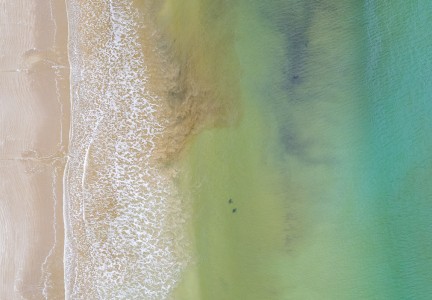
FAQs
How can I get involved?
There are so many ways to support restoration and conservation on the Chatham Islands! This includes on-the-ground work, spreading awareness of our work, donations, and joining networks in your own area.
You can also visit our Facebook page to find out what’s going on.
How do you make sure Moriori and Ngāti Mutunga o Wharekauri views are considered?
Understanding and respecting cultural practices and beliefs is an important part of our ethos. Moriori and Ngāti Mutunga both have important connections to these islands, and our conservation efforts need to be shaped with their involvement.
We have representatives from both groups on our Trust. This allows the interests and concerns of both groups to easily be brought into discussions and decision-making.
What projects does the Trust support?
We want to support all conservation projects that help our islands' natural spaces thrive, and help our island grow sustainably. Like many Trusts, we have limited resources, but we also believe that making connections and linking efforts together can help us achieve more things faster. We're always interested to hear more about new ideas or initiatives!
Predator Free FAQs
Are you going to use toxins?
We haven’t decided yet on the best way to remove possums, feral cats and rats from the island. There are new pest control technologies being developed all the time. However, to effectively remove all possums, feral cats and rats from the island, we will probably need to use toxins, as traps will not do a good enough job.
What does eradication mean, and what’s involved?
Eradication is the complete removal of an introduced species to enable native species to thrive. You can read more about eradication in the Eradication predators section.
Unlike control, eradication means the predators are gone for good. While the upfront costs are more expensive than simply controlling predator numbers, it’s a one-off cost. Eradication gives ecosystems a chance to rebalance and has better success at preventing extinctions than predator control, along with other broad benefits.
Eradication does require work to make sure that once they’re gone, the introduced species do stay gone – for example, having strict biosecurity measures.
It is a multi-generational effort and can only be achieved working with the community, but it’s a powerful opportunity for us to shape our islands’ future.
How long will Predator Free Chathams take, and how much will it cost?
PF Chathams is a long-term, multi-generational project. It's going to take a long time, and a lot of investment - but we believe it's worth it, and it's worth taking the time to do it right.
We're still in the early phases of the project, which means we're still scoping out timeframes for different stages and costs. We do know that we can't do it alone. We want to shape this with our local community and we'll also need investment and support from other organisations to make this work.
It's also worth noting that a successful eradication involves ongoing work to prevent reinvasion in the future. We do have 800 km of ocean between the Chathams and mainland Aotearoa, but biosecurity will become even more crucial to make sure pests don't return.
How will life on the island be affected while the project is carried out?
Islands without possums, rats and feral cats will be islands where everything can thrive. Our native plants and animals will have a chance to recover and return to areas of the island they've been absent from. We’ll also see benefits to our gardens, agriculture and recreation. There’s more about the benefits in the Eradicating predators section.
But it will take time to get there. While we carry out different stages of the project, there will be times when the conservation work will more obviously impact people, especially when it’s on privately-owned land. In those instances, we’ll work and plan carefully with locals. We know we can’t achieve our goals without working together.
Which predators are we focusing on?
We’ve identified three predators whose removal will have the biggest positive impact for our native species, ecosystems, and ultimately the health of the island. These are possums, feral cats and rats. Each of these species has its own unique challenges. You can read more about them in the Eradicating predators section.
No other species are in the scope of our eradication project for Predator Free Chathams.
